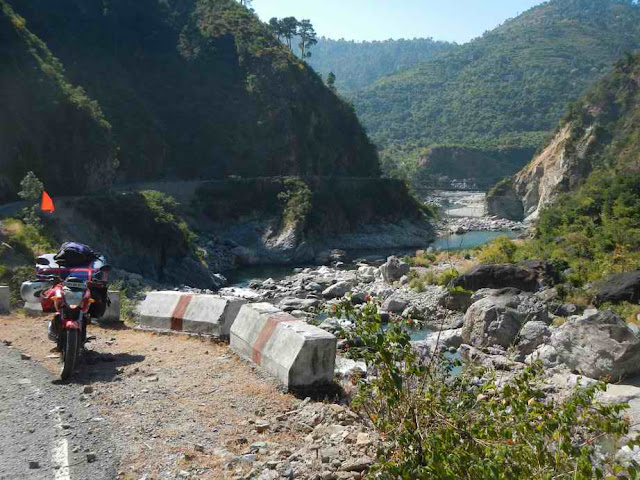After 300 km from Delhi, I
finally get to the foothills and even the foothills are steep. This makes the
roads very narrow and very twisted. 3 miles of road for every 1 mile forward.
At the start of the foothills the roads are about 1 and a half lanes wide.
Within about 70 km they are down to single lanes. Fortunately, the farther into
the mountains you go, the less traffic there is.
Due to the steepness of the
slopes as well as the deforestation, landslides are not just common but
universal. This is typical of a small landslide that ripped out the road, so
they dug further into the hillside to fill in the slide area until the next monsoon.
Coming down off a ridge I reached
the first river. I was stunned to see the high water line about 30’ above the
current level. It would be a fascinating research project to see if there are
any British Raj era flow records from back in the early 1800’s before much of
the old growth forest was cut, to see if this is natural or man-made.
The bike manual went on for a few
pages regarding proper loading and weight limits. After some calculations I
found that even with all my luggage strapped to the back I was still only 1/3
of the weight limit. It is not uncommon at all to see a family of 4 with
parcels driving along on a motorcycle, or carrying 500 lbs of LP tanks, or hay
or whatever. This makes me feel not so excessive.
This is the typical new growth deodar
forest. It is a fire tolerant species with thick bark, nearly identical to
Ponderosa. It appears from the bark that these areas are burned regularly to
provide forage for grazing livestock.




